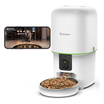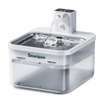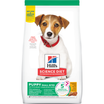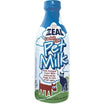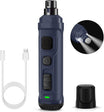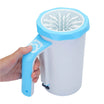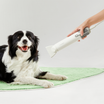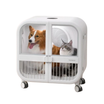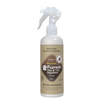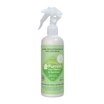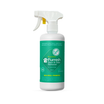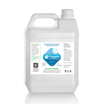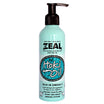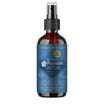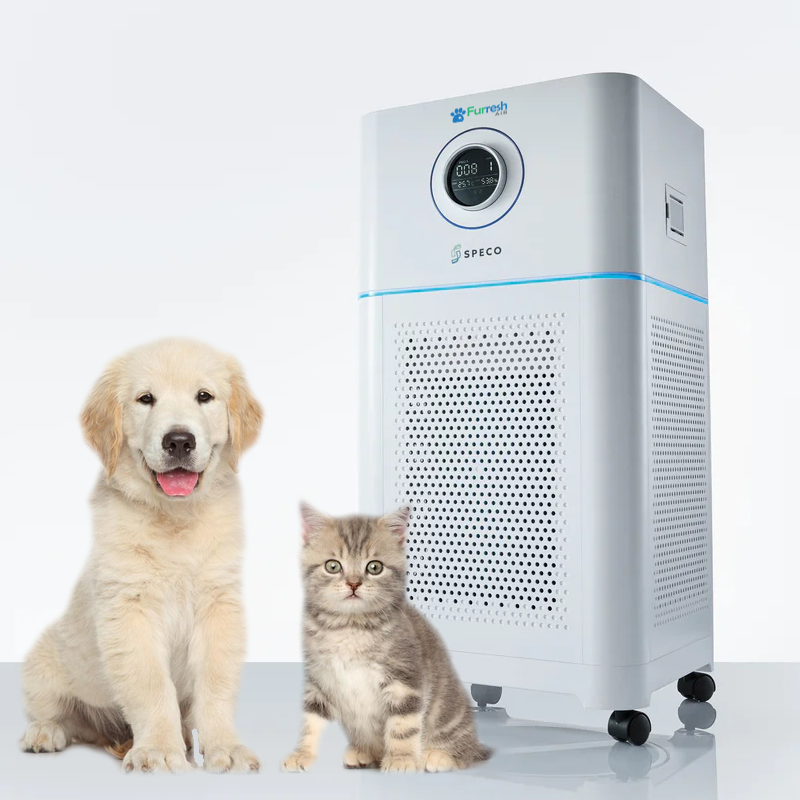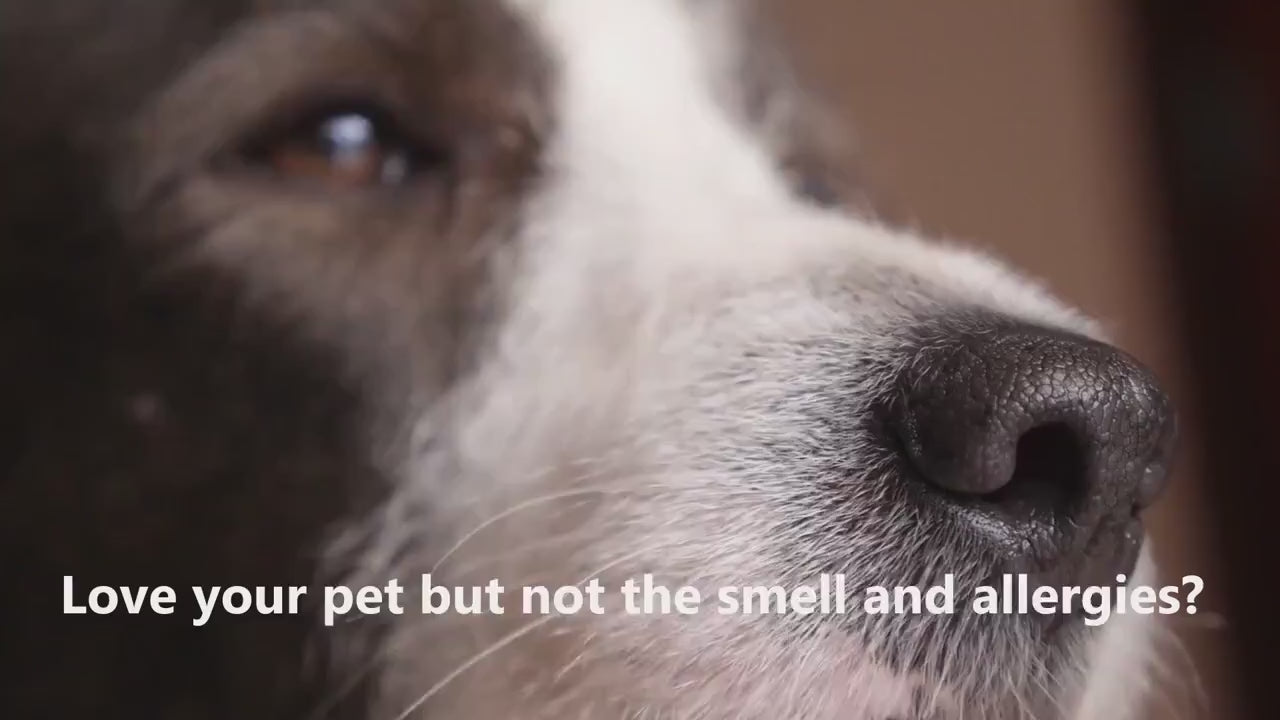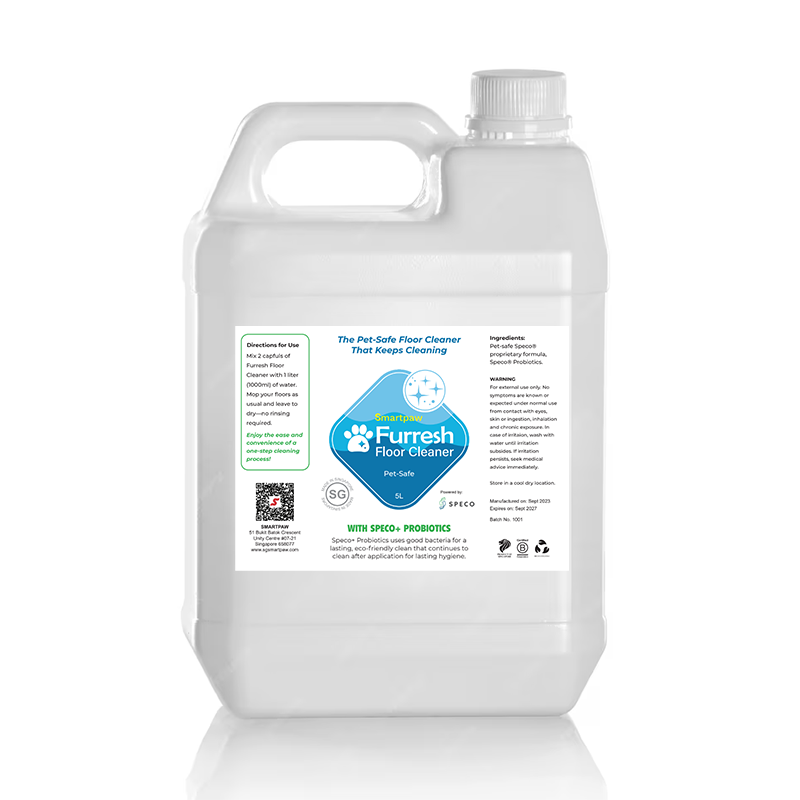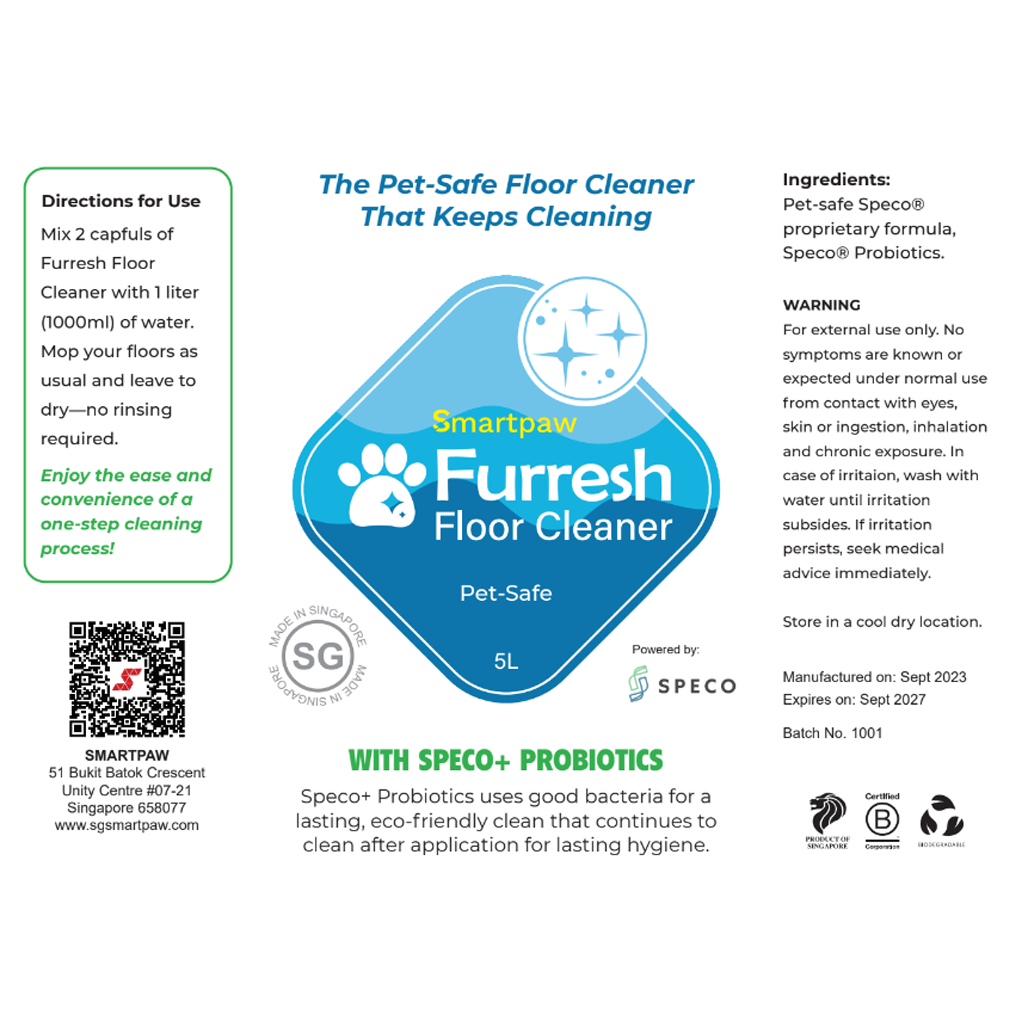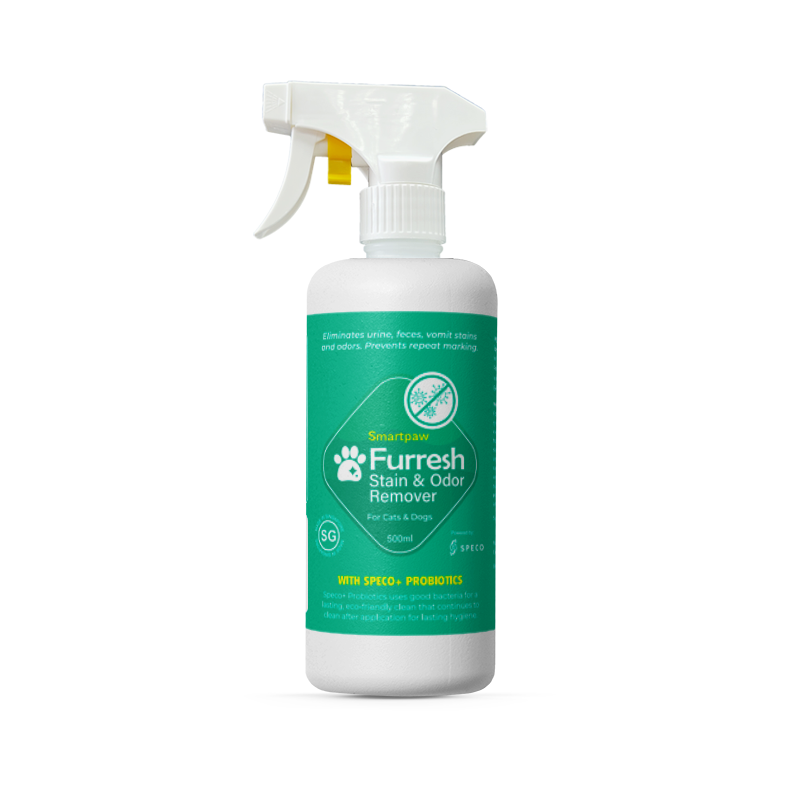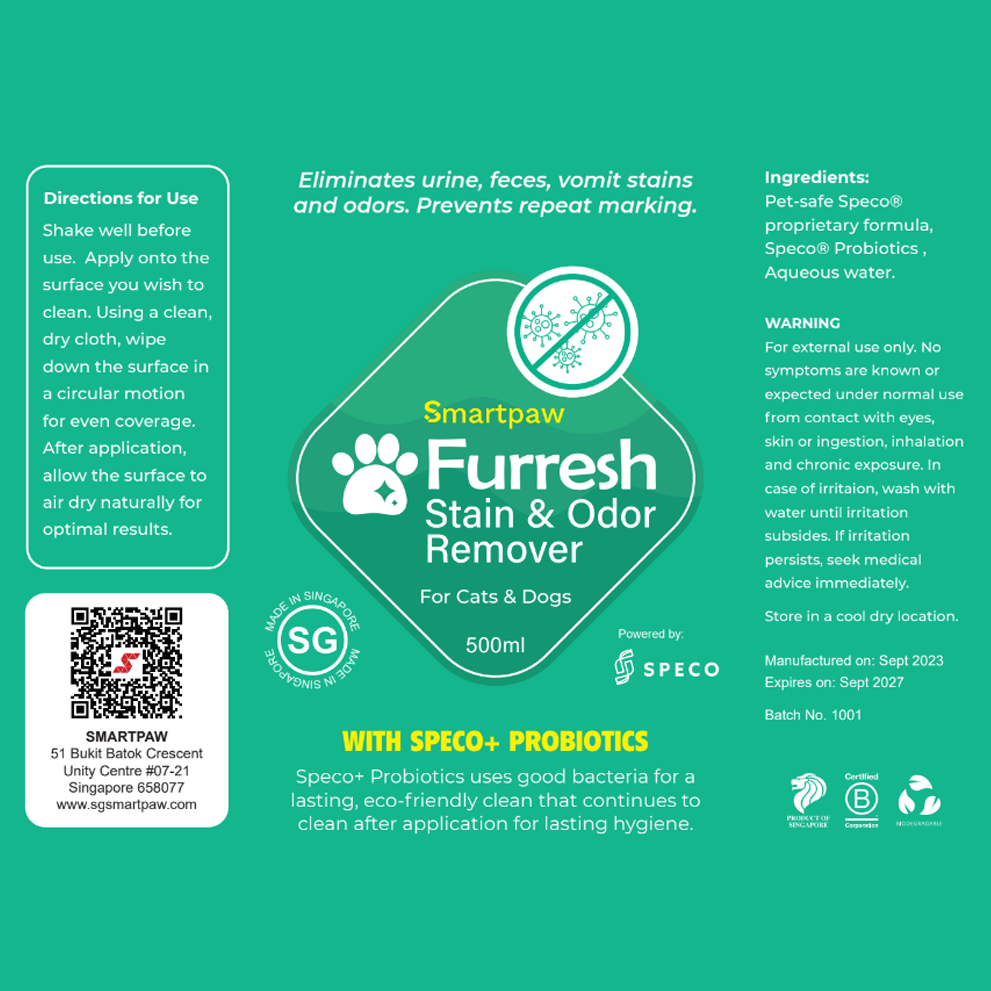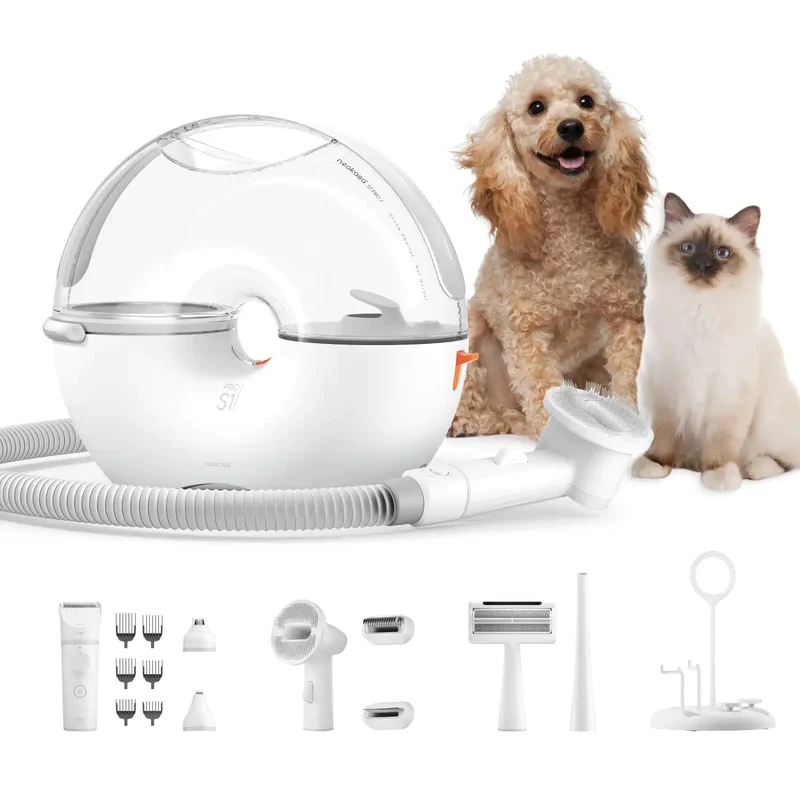Pet allergies are a common issue faced by many pet owners, often leading to a bittersweet relationship with their furry companions. It's ironic that the animals we love so much can also be the source of allergy woes. While many people experience symptoms like sneezing, itchy eyes, and skin rashes, they still choose to keep their pets for the joy they bring. In this blog, we will discuss practical solutions for managing pet allergies and providing tips for pet owners in Singapore!
Understanding Pet Allergies
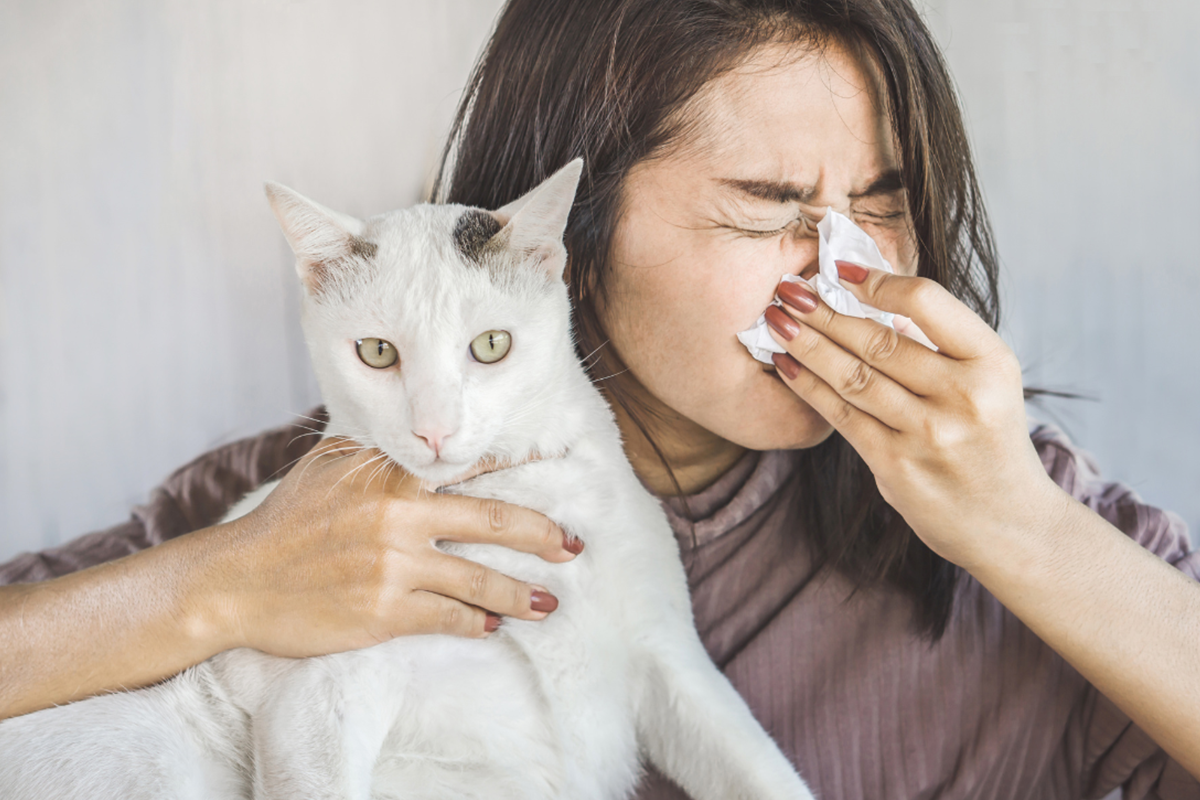
Causes of Pet Allergies
Contrary to popular belief, pet fur is not the primary allergen responsible for allergic reactions in sensitive individuals. Most allergens actually originate from a pet's saliva, skin, and urine. When pets groom themselves, they transfer these proteins onto their fur. As dander—tiny flakes of skin—flakes off and becomes airborne, it carries these allergens with it. This airborne dander can easily be inhaled, triggering a range of allergic responses in susceptible individuals.
The Role of Dander and Proteins
Dander plays a crucial role in pet allergies. It consists of microscopic skin flakes that can contain potent allergens. The proteins in pet saliva, often considered the primary triggers, can attach to various surfaces in the home, such as furniture, carpets, and clothing. When individuals come into contact with these surfaces, they can inadvertently expose themselves to allergens.
Why Some Owners are Allergic, While Others Aren’t
The reason why some pet owners develop allergies while others remain unaffected is primarily due to individual differences in immune system sensitivity. Some people have an overreactive immune response to specific proteins found in pet dander, saliva, and other secretions. This hypersensitivity can lead to a variety of allergic symptoms upon exposure to these allergens.
Immune System Sensitivity
The immune system's reaction to allergens varies from person to person. For some, the body perceives harmless proteins as threats, leading to an exaggerated immune response. This can result in symptoms such as sneezing, nasal congestion, skin rashes, and more severe conditions like asthma. Environmental factors, such as exposure to other allergens (e.g., pollen or dust mites), can also exacerbate these reactions, making it difficult to pinpoint the exact cause.
Genetic Predisposition
Genetics also play a significant role in determining an individual's likelihood of developing allergies. If a person's family has a history of allergies, they may be at a higher risk of developing similar sensitivities. This hereditary factor underscores the complexity of allergic reactions and highlights the need for tailored approaches to managing symptoms.
The Cat vs. Dog Allergy Debate
Interestingly, statistics show that more people report being allergic to cats than dogs. This trend can be attributed to a particularly potent protein called Fel d 1, found in cat saliva and skin. Fel d 1 is not only highly allergenic but also tends to remain airborne longer than allergens typically associated with dogs.
Additionally, the dander produced by cats is generally smaller and stickier than that of dogs. This allows cat allergens to adhere more easily to surfaces and become airborne, increasing the likelihood of exposure. Furthermore, cats groom themselves more frequently than dogs, resulting in more saliva being spread onto their fur and into the environment. As a result, individuals who are sensitive to allergens may find that they react more strongly to cats than to dogs.
Symptoms of Pet Allergies
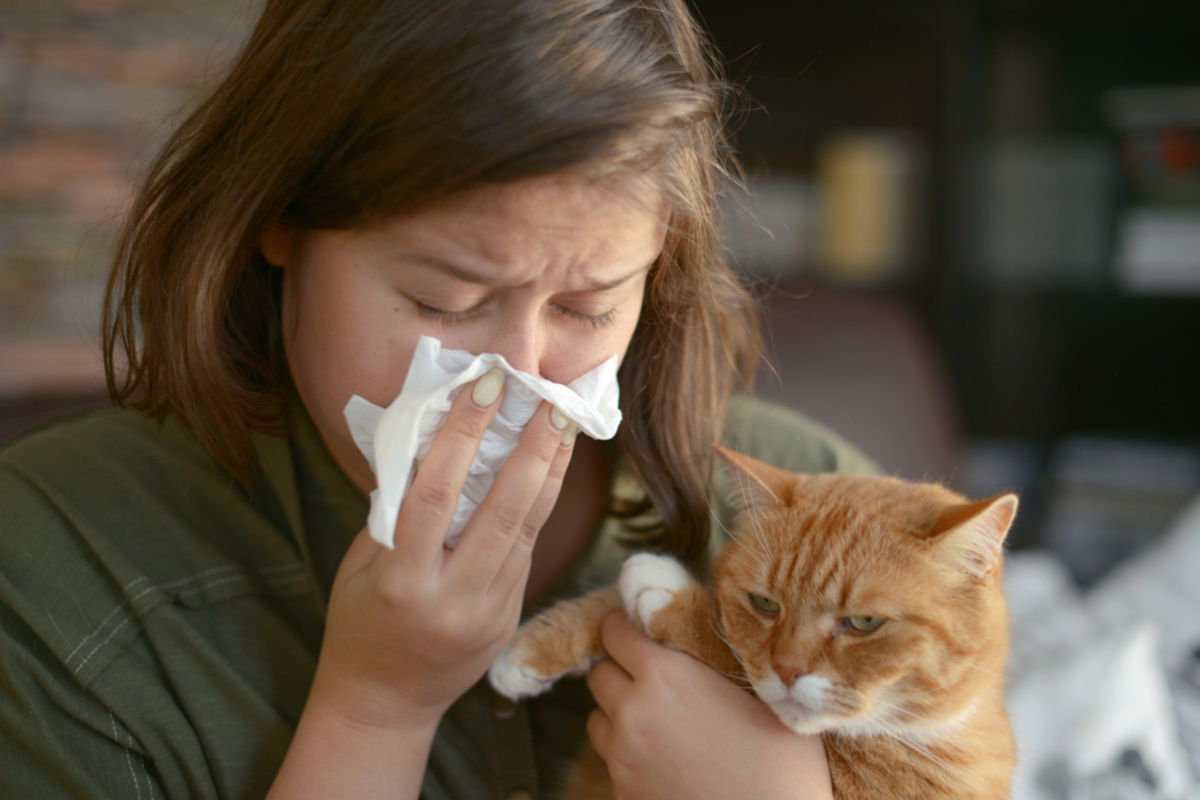
Common symptoms of pet allergies include:
- Sneezing and Runny Nose: This occurs when allergens are inhaled, triggering an inflammatory response in the nasal passages. Individuals may find themselves sneezing frequently, experiencing a persistent stuffy feeling, or having a clear, watery nasal discharge.
- Itchy Eyes and Skin: Allergens can irritate the mucous membranes of the eyes, leading to discomfort and swelling. Similarly, skin reactions can occur, manifesting as redness and itchiness on areas that come into contact with the pet. This can be especially bothersome for individuals who enjoy close interactions with their pets.
- Skin Rashes: Pet allergies can also lead to skin rashes, which may appear on any part of the body that has had contact with the pet. These rashes can range from mild irritation to more severe reactions, causing redness, swelling, and discomfort. The rash may develop immediately or after prolonged exposure to allergens.
- Asthma-like Symptoms: For those with pre-existing respiratory conditions like asthma, pet allergies can exacerbate symptoms. Wheezing, coughing, and difficulty breathing may occur, making it essential for individuals to monitor their respiratory health closely. In severe cases, pet allergens can trigger asthma attacks, necessitating immediate medical attention.
The severity of pet allergy symptoms can vary widely among individuals. Some may experience mild discomfort that is easily managed with over-the-counter medications, while others may have severe reactions that require immediate medical intervention. Symptoms can appear immediately upon exposure or may take a few days to manifest, making it important for pet owners to be vigilant and proactive about their health.
Common Solutions for Pet Allergies
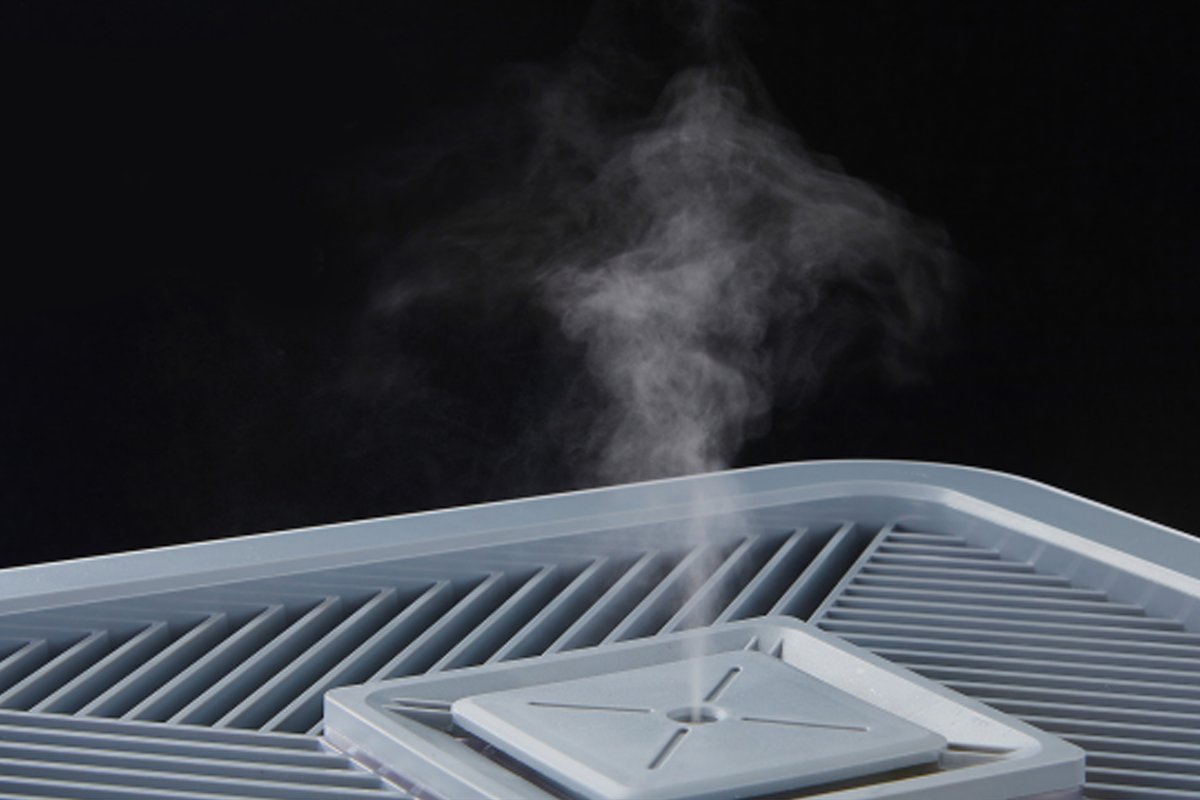
Here’s a closer look at some common solutions that can help alleviate symptoms for those allergic to their beloved pets:
Antihistamines and Nasal Sprays
Over-the-counter antihistamines are a popular choice for temporary relief from allergy symptoms. These medications can effectively reduce sneezing, itching, and runny nose by blocking histamine, a chemical released during an allergic reaction. However, long-term use of antihistamines can lead to side effects such as dry mouth, drowsiness, and urinary retention.
Nasal sprays, particularly those containing corticosteroids, can also provide significant relief. They work by reducing inflammation in the nasal passages, helping to alleviate congestion and pressure. While effective, these sprays should be used with caution, as prolonged use can lead to rebound congestion, where symptoms worsen after discontinuation, and other side effects like nosebleeds or nasal irritation.
HEPA Air Filters
Investing in high-efficiency particulate air (HEPA) filters can greatly improve indoor air quality for allergy sufferers. These filters are designed to trap tiny particles, including pet dander and other allergens, preventing them from becoming airborne. HEPA filters are most effective when used in conjunction with regular cleaning practices, such as vacuuming and dusting, to minimize allergen accumulation in the home.
Air purifiers equipped with HEPA filters can help create a cleaner environment, especially in rooms where you and your pets spend a lot of time. Check out our FURRESH Air - Pet Air Purifier and Sanitiser & Speco+ Air | Pet-Safe Air Sanitizer!
Nasal Steroid Sprays
Nasal steroid sprays are another option for managing allergy symptoms. These sprays help reduce inflammation in the nasal passages, providing relief from congestion and pressure. They can be particularly beneficial for individuals with chronic nasal symptoms. However, caution is advised with long-term use, as over-reliance can lead to complications, including potential trauma to the nasal septum and increased risk of eye conditions such as glaucoma or cataracts. Consulting with a healthcare provider before starting these treatments is essential.
Lifestyle Changes to Manage Pet Allergies
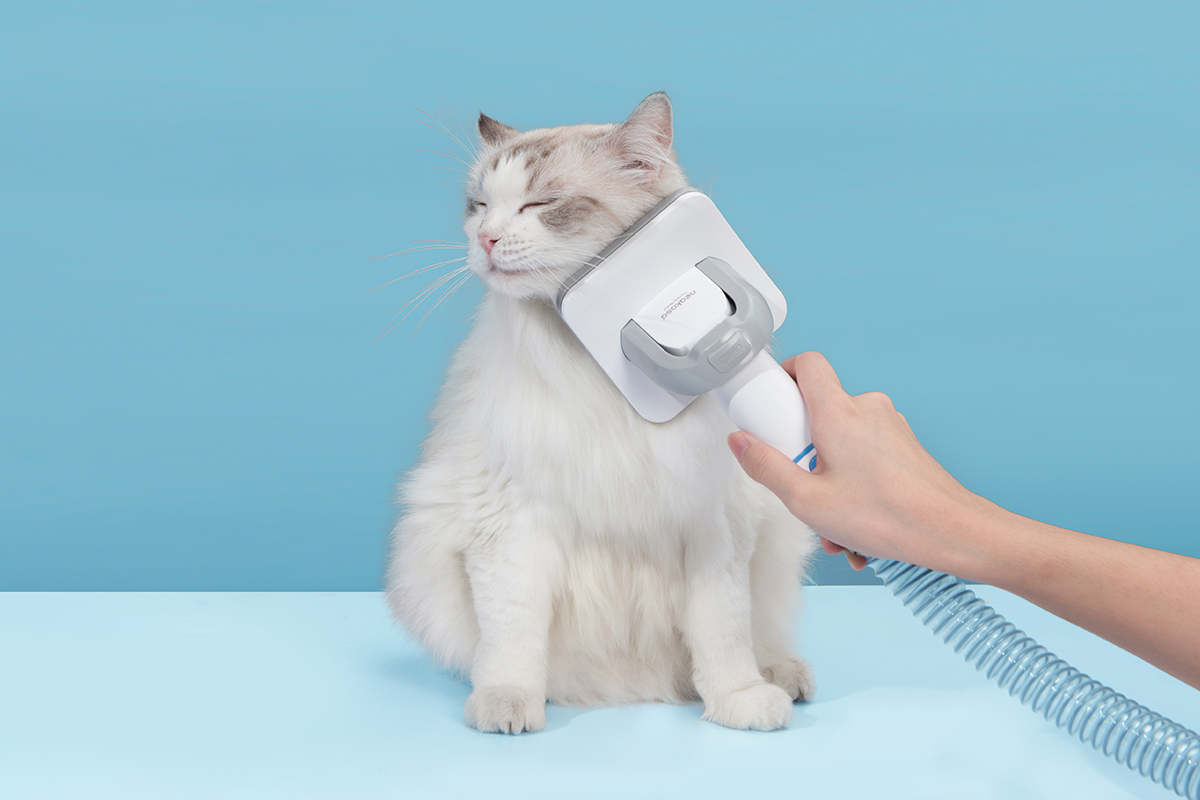
Managing pet allergies often requires a combination of strategies, including lifestyle changes that can significantly reduce exposure to allergens. Here are some effective approaches:
Regular Grooming of Your Pet
- Benefits of Regular Grooming: Consistent grooming and bathing can greatly reduce the amount of dander your pet sheds. By washing your pet regularly, you remove accumulated allergens from their fur and skin. This not only helps keep your living environment cleaner but also can improve your pet's skin health, reducing the likelihood of skin irritations that can exacerbate allergen release. Check out these pet grooming kits: Neabot Neakasa P2 Pro Pet Grooming Vacuum Kit & Neakasa S1 Pro: 8-in-1 Pet Grooming Vacuum for Dogs & Cats
- Avoid Over-Bathing: While regular grooming is beneficial, it's essential to strike a balance. Over-bathing can strip natural oils from your pet’s skin, leading to dryness and irritation. This can cause increased dander production, counteracting the benefits of grooming. Aim for a bathing routine that keeps your pet clean without compromising their skin health, typically once a month or as recommended by your veterinarian.
Create Pet-Free Zones in the Home
Establishing pet-free zones in your home, particularly in areas where you spend significant time, such as the bedroom, can help minimize allergen exposure. By keeping these areas off-limits to pets, you create safe spaces where allergy sufferers can find relief from symptoms.
This practice not only reduces the amount of pet dander in these areas but also encourages better sleep and relaxation, which can be crucial for overall health. Use baby gates or closed doors to enforce these zones effectively.
Cleaning and Vacuuming
- Regular Cleaning Routine: Maintaining a clean environment is critical in managing pet allergies. Regular vacuuming of carpets, rugs, and upholstered furniture and cleaning your floors and surfaces can help remove dander and hair that accumulates over time. Clean your living space with pet-safe cleaners like FURRESH Pet-Safe Floor Cleaner & FURRESH Stain & Odor Remover!
- Wash Bedding and Fabrics: In addition to vacuuming, regularly washing your pet’s bedding, your own bedding, and any other fabrics your pet frequently contacts can significantly reduce allergen levels. Aim to wash these items weekly in hot water to ensure thorough cleaning.
Change in Diet
The food you provide can play a vital role in your pet's overall health, including their skin condition. A nutritious diet can improve skin health and reduce the production of dander. Omega-3 fatty acids, for example, can promote healthier skin and a shinier coat, potentially leading to less shedding.
You can also add supplements in your pet's diet that can also help with their skin and coat like Naturvet All-In-One (4-IN-1 Support) Soft Chews & Labivet Probiotics Supplements. Discussing dietary changes with your veterinarian can help tailor a plan that supports your pet's health while addressing allergy concerns.
When to Consider Medical Treatment
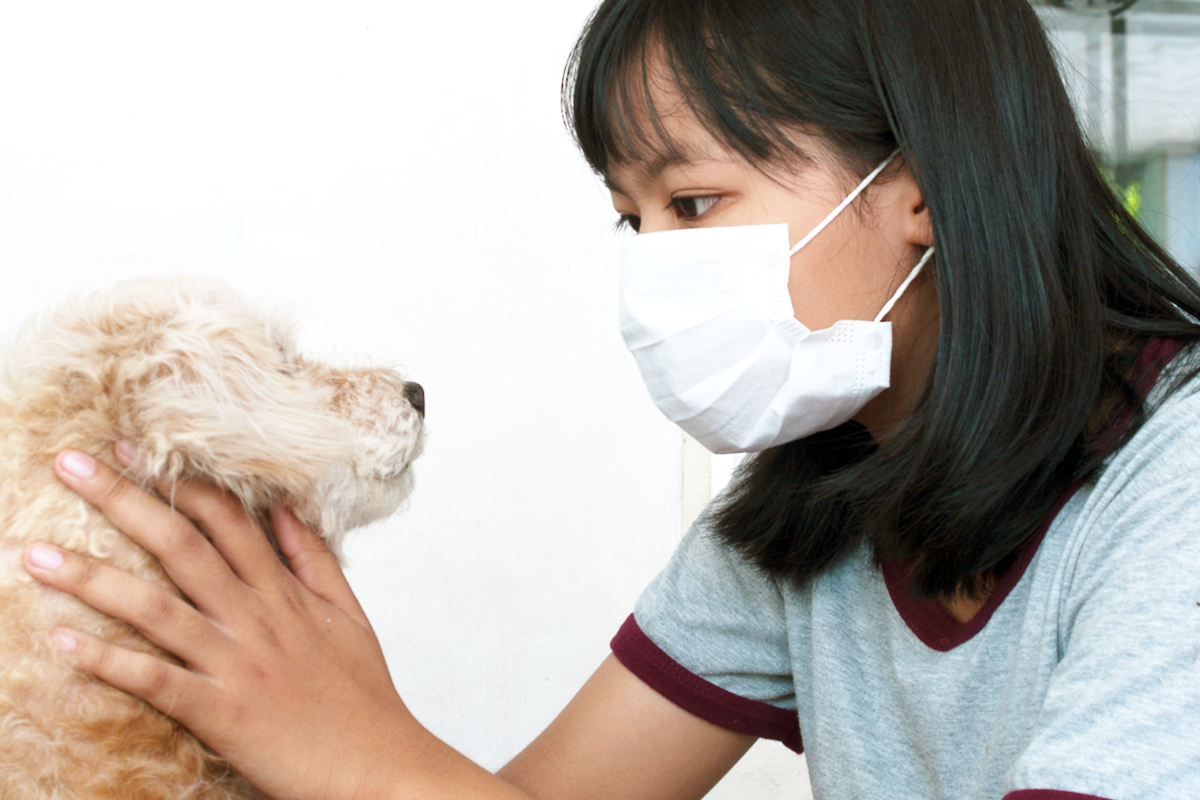
Immunotherapy
Immunotherapy, often referred to as allergy shots, is a treatment designed to build tolerance to specific allergens over time. This method involves administering small, controlled doses of allergens, gradually increasing the amount until the body can tolerate larger exposures without triggering an allergic reaction.
- How Allergy Shots Work: Allergy shots work by desensitizing the immune system to the offending allergens. Initially, patients receive injections more frequently, typically once or twice a week. After reaching a maintenance dose, the frequency can be reduced to once a month. Over the course of three to five years, many individuals experience a significant reduction in their allergy symptoms, allowing for a better quality of life with their pets.
- Suitability: Immunotherapy is particularly beneficial for individuals with severe allergies or those who have not found relief with conventional medications. However, it's important to note that not everyone will respond to this treatment. Those considering immunotherapy should discuss the potential benefits and risks with their healthcare provider.
Consulting Your Doctor or Vet
Before starting any medical treatment for pet allergies, it is crucial to consult with healthcare professionals, including your doctor or veterinarian. They can provide a comprehensive evaluation of your symptoms and help determine the best course of action.
- Importance of Professional Guidance: Discussing your allergy symptoms in detail is essential for identifying the underlying causes and exploring suitable treatment options. Healthcare professionals can recommend various solutions tailored to your specific needs, including medication options, lifestyle changes, and even alternative therapies.
- Long-Term Solutions: It's essential to approach pet allergies as a long-term health concern. Your doctor can help develop a comprehensive management plan that includes medication, environmental changes, and lifestyle adjustments, ensuring you and your pet can coexist comfortably.
What Not to Do When Managing Pet Allergies

Isolating Your Pet
Locking your pet in one room as a means to manage allergies might seem like a straightforward solution, but it can actually lead to significant stress for both you and your pet. Animals are social creatures that thrive on interaction and companionship. Isolating them can cause anxiety, depression, and behavioral issues, leading to further complications in your relationship.
- Why This Approach Is Ineffective: Instead of truly reducing allergens, isolating your pet may only delay your exposure to them. Allergens can still linger in the air and on surfaces throughout your home. Additionally, the stress of isolation can lead to increased shedding and dander, potentially worsening your allergy symptoms.
Self-Medicating
While it can be tempting to use over-the-counter medications to manage allergy symptoms on your own, self-medicating can be risky. Many allergy medications can have side effects that vary from person to person, and without proper guidance, you may not be addressing the underlying cause of your allergies.
- The Importance of Consultation: It’s crucial to consult a healthcare professional before starting any medication regimen. A doctor or allergist can provide a proper diagnosis, recommend appropriate treatments, and monitor your progress. This personalized approach ensures that you receive the most effective and safe treatment for your specific allergy symptoms.
Conclusion

Living with a pet despite allergies can be challenging, but with the right strategies and adjustments, it’s possible to manage symptoms effectively. Always consult healthcare professionals for personalized advice to ensure both you and your pet can enjoy a happy, healthy life together!
Learn more about the latest news on pet allergies in Singapore here: https://cnalifestyle.channelnewsasia.com/wellness/allergic-pet-cats-dogs-allergies-394956
We encourage you to share your experiences with pet allergies, we would also love to read them!
Sign up to our newsletter down below & follow us on Instagram @sgsmartpaw to stay up to date with our blog articles!

Rose Hazel San Diego
Hazel loves pets & she has owned cats, dogs, & even hedgehogs! She also fosters cats & dogs in need around her area. With her social media & copywriting background, she gladly shares her knowledge of pets through these articles!
Most Recent Articles

Hari Raya Feasts & Furry Friends: What’s Safe & What’s Not for Your Cat?
Hari Raya is a time of joy, delicious feasts, and cherished moments with family and friends—including our furry companions! But did you know that some traditional Raya dishes can be harmful to cats...

7 Hidden Pet-Friendly Parks in Singapore You Must Visit With Your Pet ( Updated )
Looking for new adventures with your furry friend? Discover 7 Hidden Pet-Friendly Parks in Singapore that offer peaceful retreats away from the crowds. From scenic nature trails to spacious dog run...

8 Best Pet-Friendly Photography Studios in Singapore for a Pawsome Photoshoot
Looking for the perfect place to capture unforgettable moments with your furry friend? Whether it’s for a special occasion or simply to celebrate your pet’s unique charm, Singapore has a range of p...


